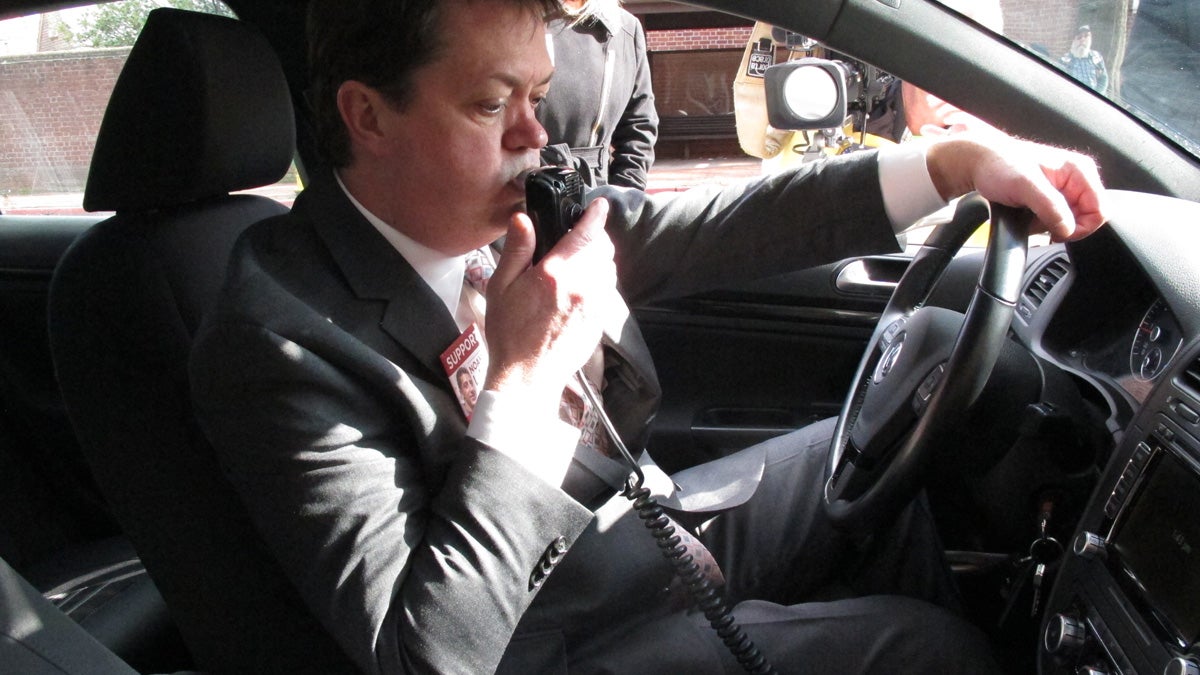Pa. allowing first-time DUI offenders to use ignition locking system — and keep driving

Andrew Wisniewski
Pennsylvanians convicted of driving under the influence for the first time could still keep their licenses — with conditions.
Gov. Tom Wolf has signed a law that extends the availability of an ignition interlock in the vehicles of drivers with a blood alcohol content between 0.10 and 0.15 percent. Pennsylvania is the 48th state to do so.
The interlock device, consisting of a tube that reads blood-alcohol levels, connects to a vehicle’s steering wheel. When a driver blows into the tube, and the device registers a level above 0.08 percent — the state’s legal limit — the car will not start.
The device will be regularly monitored by the company that installed it.
First-time DUI offenders will have to apply for an ignition interlock license as well as have the device in every car they own for at least one year.
They will have to pay approximately $1,000 just for the device, according to the state Department of Transportation, but the cost can vary depending on the ignition interlock provider. There is an additional fee for the accompanying required license.
A previous law required ignition interlocks only for repeat offenders.
But making the device available for first-time offenders will allow drivers to continue on with their daily lives while also ensuring they do not drive under the influence again, said Malcolm Friend, a program manager for Mothers Against Drunk Driving in Pennsylvania.
Sen. John Rafferty, R-Montgomery, introduced the legislation. The law will officially go into effect by the fall of 2017.
WHYY is your source for fact-based, in-depth journalism and information. As a nonprofit organization, we rely on financial support from readers like you. Please give today.

